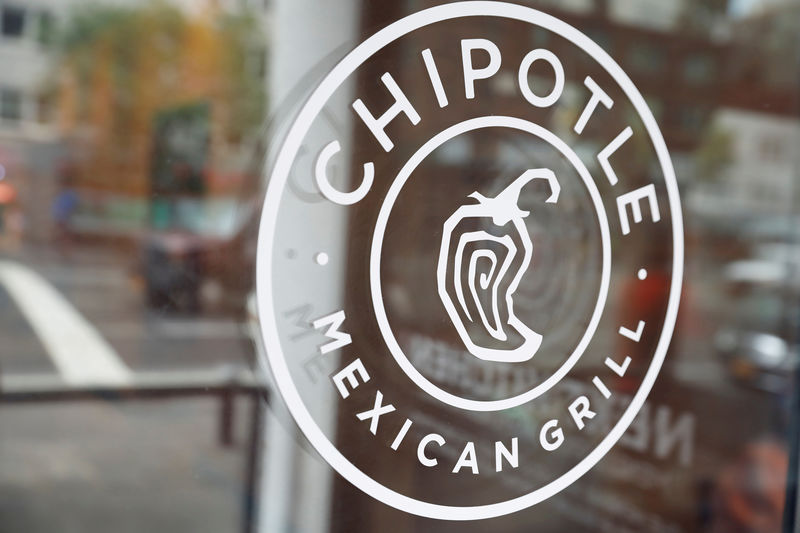By Hilary Russ
NEW YORK (Reuters) - Chipotle Mexican Grill Inc (NYSE:CMG) is facing fresh claims that it violated New York City's labor laws after the city sued the fast casual restaurant chain two weeks ago.
Employees from five additional stores filed complaints with the city's Department of Consumer and Worker Protection on Tuesday and walked off their jobs at lunchtime, according to Service Employees International Union 32BJ, the union organizing the workers.
The violations make it hard for fast-food workers to plan their lives, 32BJ President Kyle Bragg said in a statement.
"When fast food companies violate these provisions, workers lack the advance notice they need to plan other responsibilities such as second jobs, doctors' appointments or childcare," he said.
On Sept. 10, the city sued Chipotle, accusing it of violating its Fair Workweek Law by failing to provide schedules at least two weeks in advance and failing to pay premiums for last-minute schedule changes, among other claims.
The lawsuit stemmed from complaints by more than 30 workers at five Chipotle restaurants in Brooklyn.
"Chipotle has been working cooperatively with the city to ensure we have systems and processes in place to comply with the law, so we believe the filing of charges was unnecessary," Laurie Schalow, Chipotle's chief corporate reputation officer, said in a statement at the time.
"Regardless, we will continue to cooperate with the city and we are addressing any prior noncompliance concerns," she said.
Tuesday's complaints bring the total number of New York City Chipotle locations facing accusations to more than 20, 32BJ said.
The National Restaurant Association, the industry's main lobbying group, the International Franchise Association (IFA) and the New York State Restaurant Association have been fighting the city's law in court since December.
They argue the policy is prohibitively expensive for franchises, which are independently owned and operate more like a small business than a major corporation.
"The unaffordable costs associated with this well-intentioned policy make it a challenge for these franchise small businesses to operate, which unfortunately jeopardizes the livelihoods of the very employees it aims to protect," said IFA spokesman Stephen Worley.

Seattle, the California cities of San Francisco, San Jose and Emeryville; and the state of Oregon have approved similar measures.